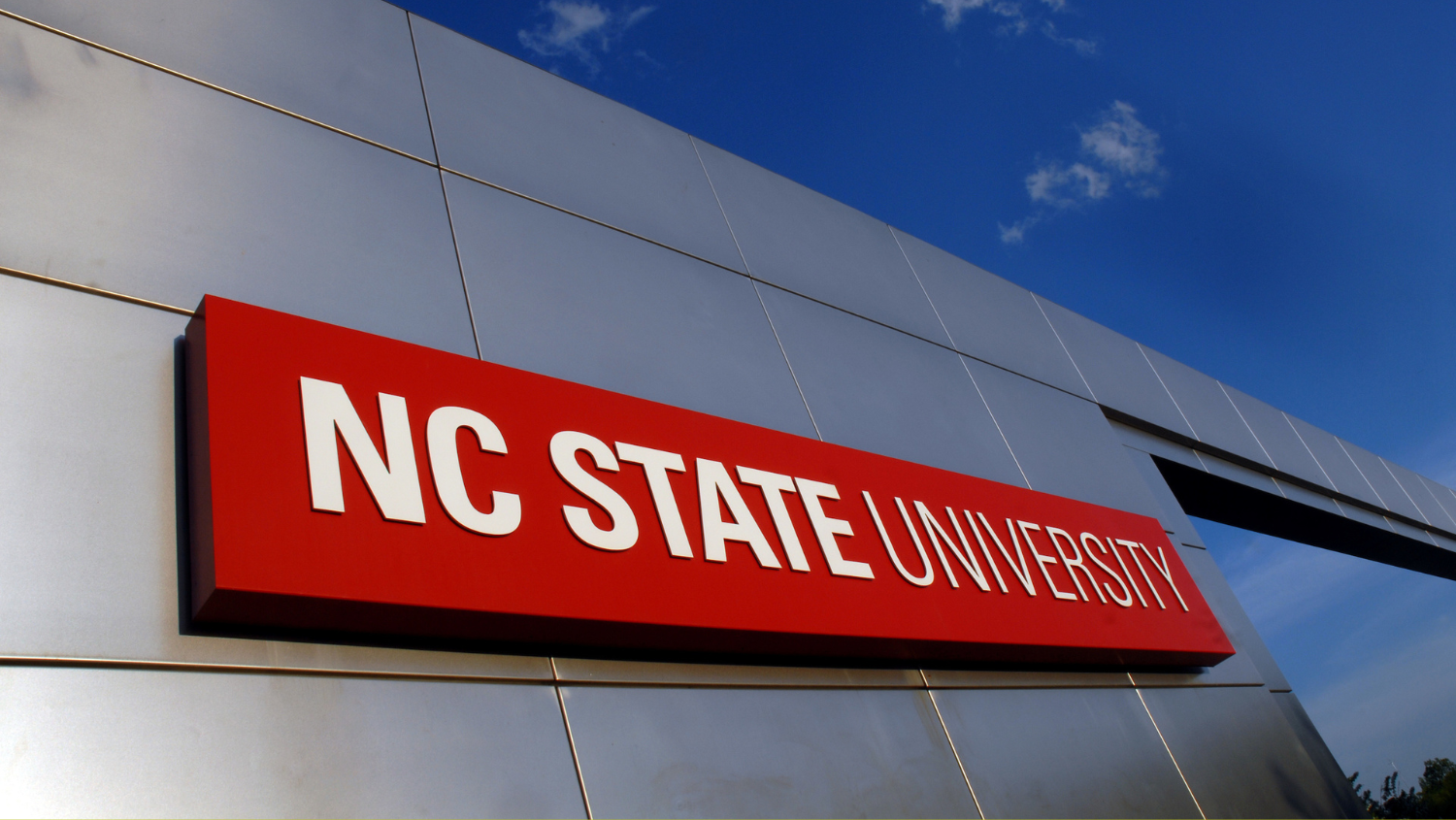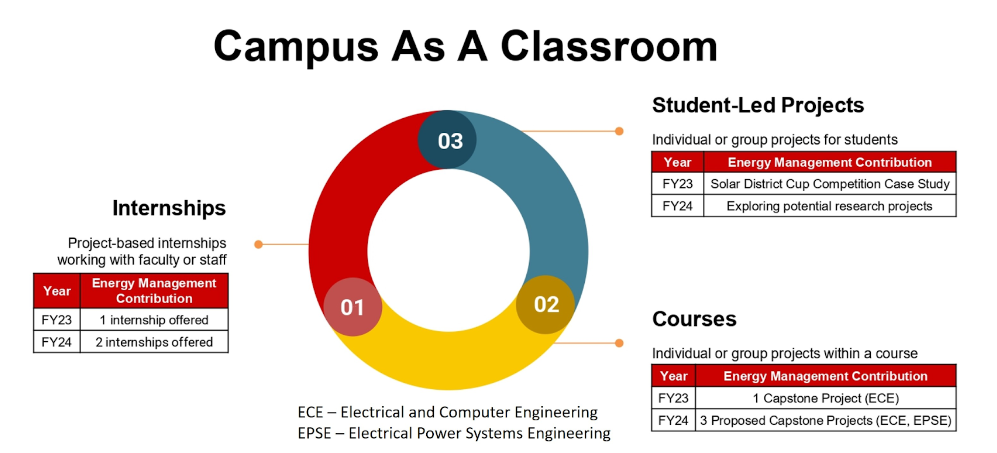Energy Management Student Interns Fuel Campus Innovation

Not all learning happens in a classroom. At NC State University, Energy Management has taken a proactive role in supporting experiential learning opportunities for students through internships and mentoring of student-led projects via the Campus As A Classroom program.
Campus As A Classroom aims to advance sustainability at NC State while also helping students develop technical knowledge and leadership skills. This academic year, Energy Management is hosting three interns who will focus on identifying energy savings opportunities and optimizing campus energy systems.
This year’s student interns will have a direct impact on campus sustainability goals. College of Engineering students Joshua Mulshine and Neel Weltken are monitoring and analyzing building energy use, troubleshooting the Building Automation Systems (BAS) and helping to plan new energy efficiency projects. College of Natural Resources student Sarah Jacobs, who is co-sponsored by the University Sustainability Office, is developing a campus sustainable lab program.
Energy Management also provides guidance for individual students, Senior Design and graduate-level capstone projects. These projects include large heat pump applications, advanced planning for solar, battery and electric vehicle charging stations, and battery and thermal energy storage optimizations. This support provides students the opportunity to work on real-world challenges while also making a tangible impact on the university’s sustainability efforts. All are meant to advance the use of the latest technology on our sustainable campus.

Energy Management researches, evaluates and deploys energy efficiency technology to reduce energy use intensity by 40% from the 2003 baseline and water consumption by 65% from the 2002 baseline. These efforts are part of the university’s commitment to reach climate neutrality by 2050 as approximately 75% of NC State’s Raleigh campus climate footprint is due to campus energy consumption.
There are numerous opportunities for faculty, staff and students to collaborate with Energy Management and help achieve these goals. For more information, contact save-energy@ncsu.edu.